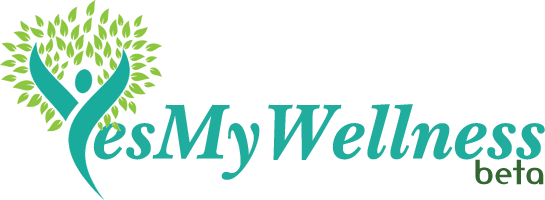It’s Time You Take Care Of Your Heart
Share
There are many different types of heart disease, ranging in severity from mild to life-threatening. Medical science has transformed the treatment of heart conditions in the past 50 years and most people now survive a major incident such as a heart attack, but a full recovery also depends on making important lifestyle changes that encourage the heart to heal.
KEEP TAKING THE PILLS
If you have heart disease, drugs are likely to be part of your recovery program. Medications treat heart disease in different ways: they may target the heart directly, by affecting the way it works, or indirectly by lowering blood pressure or cholesterol.
Some of the common drugs/medicine for heart disease :
Aspirin : reduces the stickiness of blood cells called platelets, cutting the risk of clotting or a blocked coronary artery.
Beta-blockers : block the effects of stress hormones, which make your heart beat faster. They cut the risk of a heart attack by preventing angina attacks, reducing high blood pressure and improving heart function. They can make an abnormal heart rhythm regular.
Calcium channel blockers : help to dilate constricted blood vessels, improving angina, high blood pressure and heart function.
Diuretics : remove excess water from the body and are used to treat high blood pressure and heart failure.
Nitrates : dilate the coronary arteries to improve blood flow to the heart muscle and are used to relieve angina.
Statins : reduce the risk of having a heart attack by reducing the amount of cholesterol in the blood.
YOU HAVE TO HELP YOURSELF
A global study called Interheart has found that 90% of first heart attacks can be attributed to 9 controllable major risk factors:smoking, high blood cholesterol, high blood pressure, diabetes, obesity, stress, lack of daily fruit and vegetables, excess alcohol intake, and lack of daily exercise.
If any of the above affect you, you must tackle them as part of your recovery:
- stop smoking
- adopt a healthy diet
- lose weight
- take daily exercise
- control stress
- moderate your alcohol intake
FOLLOW A HEART-HEALTHY DIET
Aim to restrict your intake of saturated fat replacing it with unsaturated fat. Eat 2 to 3 portions of fish a week especially oily fish. Eat at least seven portions of fruit and vegetables every day, and select different colours for the healthiest choice. Keep your intake of milk, cheese, butter and red meat to a minimum, and avoid foods such as pastry, biscuits and cakes.
Use low-fat dairy products where possible. Include wholegrain bread, wholemeal pasta or brown rice with every meal, along with a low-fat source of protein such as chicken breast.
CUT DOWN ON SALT
Common salt (sodium chloride) raises your blood pressure, which puts extra strain on your heart. To aid your recovery from heart disease, you must cut back on salt where you should eat no more than 6g of salt (2.4g of sodium) a day. Don’t worry you will get use to it as your tastebuds quickly adjust to eating less.
Some tips on how to lower your salt intake :
- Sprinkle less salt or preferably none on your food. In cooking, use lemon juice, vinegar, spices and pepper as alternative flavourings.
- Buy low-sodium salt, which contains potassium. Sea salt, rock salt and natural salt are high in sodium.
- Avoid processed foods, tomato sauce, stock cubes or other manufactured stock, sausages, bacon and other cured meats, all of which contain high levels of salt.
- Find low-salt varieties of potato chips, tinned soups and even breakfast cereals.
REDUCE YOUR WEIGHT
Being overweight is bad for health in general, and your heart in particular, if you are one of the many overweight people with heart disease, you probably know that losing weight will give a huge boost to your chances of a lasting recovery. The most serious problem is abdominal fat.
BRUSH YOUR TEETH
If you don’t brush your teeth, your mouth can become infected with bacteria, which can cause inflammation. Inflammation in the body (including gum disease)is a significant risk factor for heart disease. Dentists recommend brushing twice a day.
Use low-fat cooking techniques
These include grilling or roasting, stir-frying, steaming and cooking without oil, such as in a griddle pan or in a parcel of baking paper.
THE TOP 10 FOODS FOR A HEALTHY HEART
1. DARK CHOCOLATE
Good news for chocolate lovers especially dark chocolate as it is rich in flavonoids that keep cholesterol from gathering in blood vessels. It also slightly lowers blood pressure but becareful to eat no more than 45g daily.
2. WALNUTS AND ALMONDS
Walnuts and almonds are rich in essential fatty acids that help to keep your blood vessels healthy by lowering cholesterol levels.
3. OLIVE OIL
Olive Oil is a potent mix of anti-oxidants that reduce LDL cholesterol while leaving your HDL cholesterol untouched.
4. OATS
Oats contain a high proportion of soluble fibre, which reduces ‘bad’ LDL cholesterol.
5. SALMON AND FRESH TUNA
Fish like salmon and tuna contain high levels of omega-3 fatty acids. Aim to eat 3 portions of oily fish a week.
6. YOGURTS AND SPREADS (CONTAINING PLANT STEROLS SIMILAR TO ‘GOOD’ HDL CHOLESTEROL)
Yogurt can reduce blood levels of LDL cholesterol by up to 10%.
7. RED WINE
Red wine has been shown to clean up the walls of the arteries. But be careful not to exceed healthy guidelines.
8. TOMATOES (AND TOMATO PASTE)
Tomatoes are packed with vitamins and the anti-oxidant lycopene, which benefits the heart.
9. APPLES
Apples contain quercetin, an anti-inflammatory chemical that can help to prevent blood clots.
10. ONIONS AND GARLIC
In addition to their distinctive pungent smell, onions and garlic also help to cut blood cholesterol, as well as improving circulation and discouraging blood clotting.
You Might also Like














